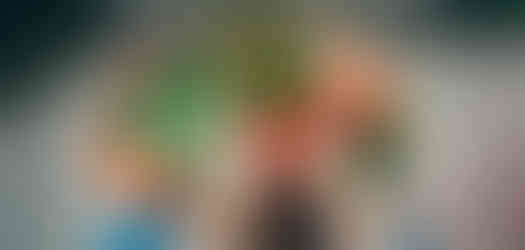Qi...what is it exactly?
- Jodie Treloar, L.Ac
- Sep 3, 2018
- 2 min read
In practice, I get this question a lot...honestly, I still contemplate it
myself. I think learning more about Qi is a great place to start when beginning to explore the vast world of Acupuncture and Chinese Medicine.
Simply put, Qi = Life Force
It has been said that "...Qi is the pulsation of the cosmos itself." (Kaptchuk, 43). Sounds a bit Sci-Fi...and frankly, it sort of is. Qi is the invisible energy coursing throughout our bodies, essentially allowing us the gift of life itself. It resides in all parts of us...from the physical to the psychological.

The origin of Qi has 3 main sources -
Original Qi (Yuan-Qi) or Prenatal Qi
Grain Qi (Gu-Qi)
Air Qi (Kong-Qi)
Original Qi is transferred to us via our parents during conception. It is responsible for our inherited constitution or genetic make-up. Ever hear the phrase "I got it from my mama..."?
Grain Qi (my personal favorite due to my passion for food) is a product of our digestion. Truly, we are what we eat...that goes for our Qi, too!
Air Qi is derived from the actual air we breath via the lungs. Not an easy feat...let's all say a big "thank you" to our lungs shall we?!
Collectively, these 3 sources of Qi blend together, ultimately creating the Qi that permeates the entire individual and is reflected in mind, body and spirit. Once this Qi has been formed, it is ready to do it's job which is to assist us in being...well...us!
Qi is further divided into various forms that have more specific tasks such as movement, protecting the body from exterior pathogens, transformation within the body, maintaining structural integrity, and temperature regulation.
Now that we've covered some of the basics of what Qi is, and what it does...where does the acupuncturist come in? Given the way Qi travels throughout our bodies via meridians (think of them as "Qi Highways" running in different directions within the system), an acupuncturist is responsible for making sure things are flowing properly. Through various observation techniques, the practitioner can fine tune the treatment to fit the patient's needs. I have often described myself as a "Qi Electrician" making sure things are flowing smoothly, eliminating blocks that can impede Qi circulation, and bolstering or sedating Qi when necessary.
In addition to acupuncture, the following are some great ways to both build and protect your Qi.
Eating a healthy diet consisting of whole, organic foods
Getting proper rest
Meditation
Regular exercise (yoga, walking, dancing, weight training, jogging, martial arts, etc.)
Regular practice of Qigong (translation ~ "Life Energy Cultivation") or Tai Chi...both involve the coordination of specific postures, movements and breath coupled with meditation
Giving and receiving love
Spending time in nature
The most important thing to remember is that our Qi is precious, and should be cultivated, preserved and respected.
The question is, how are you going to spend yours?




















Very interesting and provocative Jodie.
A Qi electrician! Brilliant!